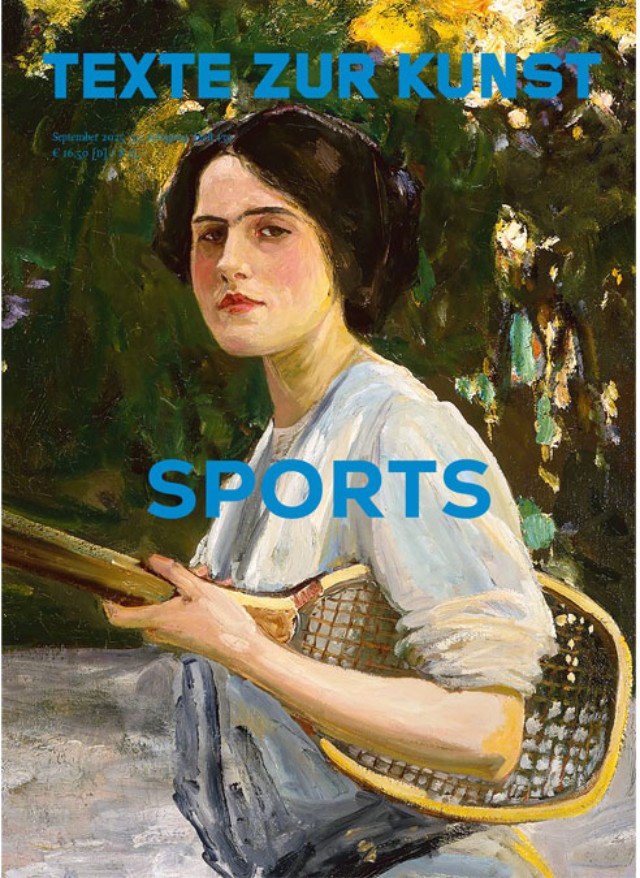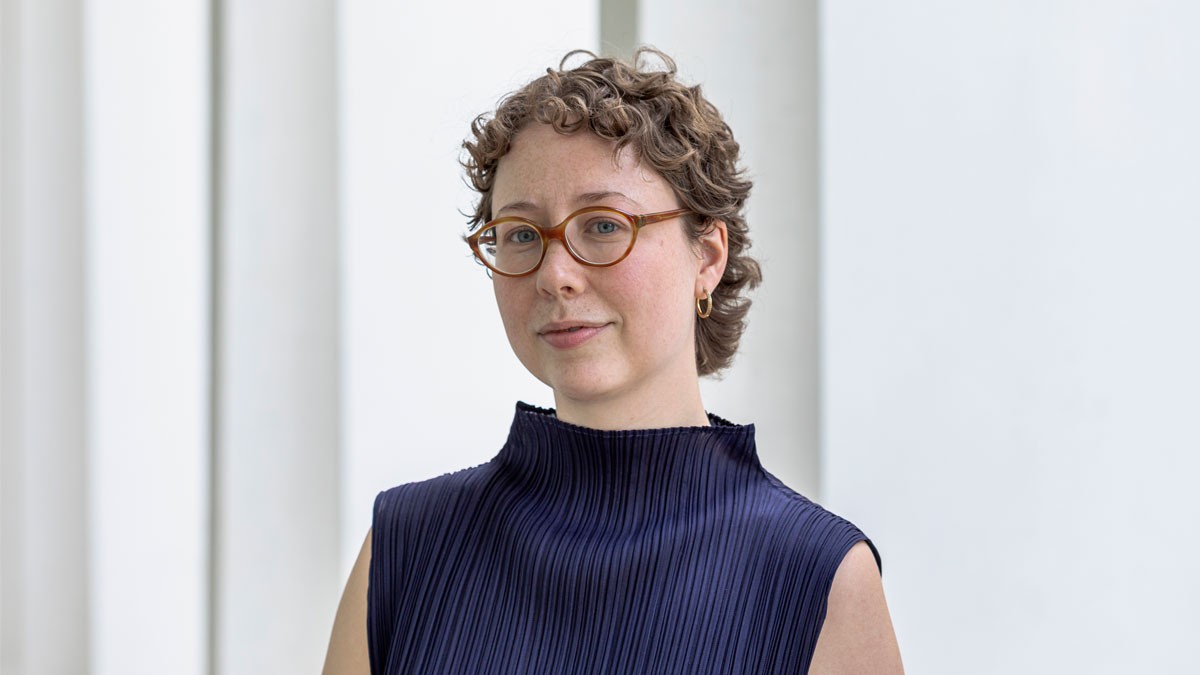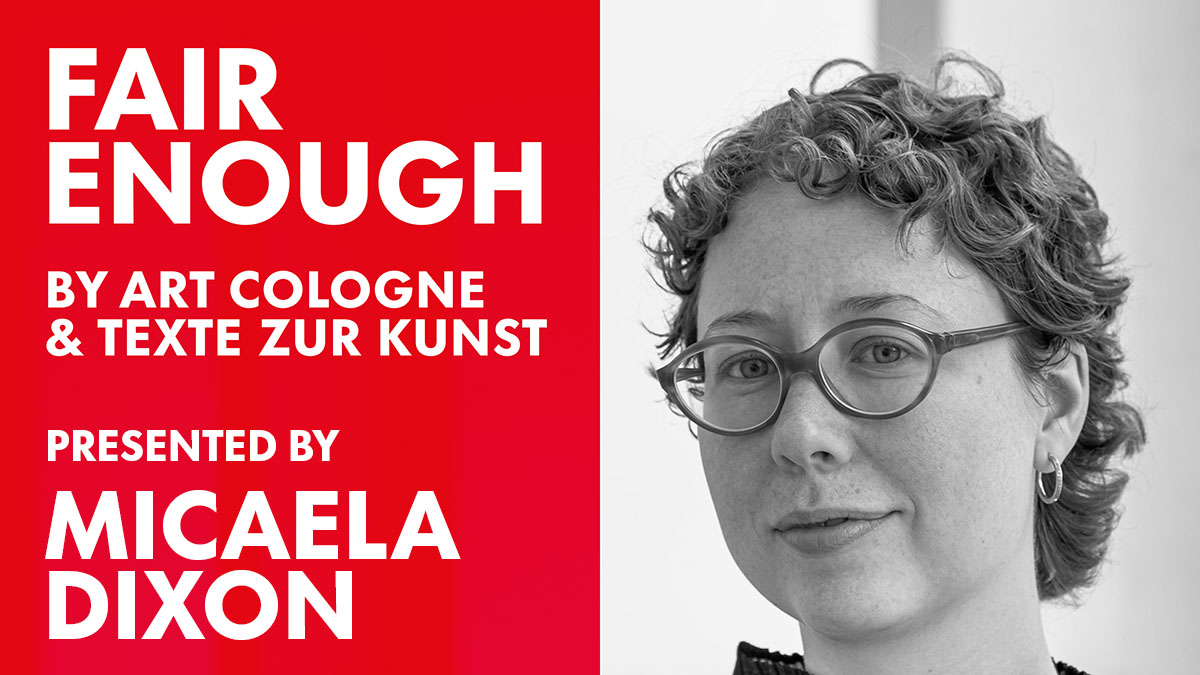Reopen Debate
The ART COLOGNE talks program continues to evolve. Micaela Dixon is responsible for a new concept that focuses on internationality and more intensive discourse. The Canadian author and curator is director of the Brussels-based KIN gallery. Previously, she was part of the Artist Liaison Team at Hauser & Wirth and worked for Fogo Island Arts, an organization for contemporary art on the east coast of Newfoundland and Labrador.
How does the new talks programme differ from the old one?
The main difference between last year's and this year's talks programme is the format, with the focus shifting to more discursive conversations. Previously, all talks took place live at the fair, which limited the number of participants and the geographical diversity of guests. This year, only one talk will take place live at ART COLOGNE, while the rest will be recorded and made available online in the ART COLOGNE Journal as well as on Spotify, Apple Music and other podcast platforms. This allows us to reach a much wider audience – both geographically and in terms of interests – and to create a programme that can be experienced on demand.
By switching to this hybrid format, we have been able to invite scientists, artists and thinkers who are not all based in Europe, making the programme more global and accessible. It also allows for more in-depth discussions, rather than being limited by the constraints of a live event. Overall, the new format aims to promote a sustained engagement with the ideas discussed and give the audience time to listen, repeat and reflect. At the same time, the discourse of ART COLOGNE is to be integrated into the broader field of international art criticism and scholarship.
What thematic priorities would you like to set?
This year's lecture programme is a collaboration with TEXTE ZUR KUNST, and the podcast series takes up the theme of the magazine's 35th anniversary: ‘Without criticism, there is no art.’ Questions about the role and relevance of critical discourse in the art market are more relevant than ever. The programme focuses on discussions that examine the role of critical thinking in contemporary art and explore how reflection, debate and analysis shape artistic practice today.

The Berlin-based art magazine TEXTE ZUR KUNST is the cooperation partner for this year's talk and podcast programme. Photo: TEXTE ZUR KUNST
Diverse voices
How did the collaboration with the magazine TEXTE ZUR KUNST, which was founded in Cologne, come about?
The collaboration came about quite naturally. We discussed organising a panel together on the topic of “bad criticism”. I thought this was a humorous way of looking at art criticism with all its hubris, silliness and occasional absurdity. Around that time, one of the editors suggested using some earlier articles from the magazine as a basis for the discussions, and I thought it was a great idea!
As I developed the panel, I realised that TEXTE ZUR KUNST had already been dealing intensively with this topic for years – first in March 2002 with the issue ‘Verriss’ (Scathing Review). This term is not used often, but when it is, you know it's harsh. And later, in September 2023, they returned to the topic with the issue ‘Rezensionen’ (Reviews). Rather than viewing this as a limitation, we saw it as an opportunity to build on an existing wealth of ideas and initiate a discussion that could resonate with the ongoing discourse of TEXTE ZUR KUNST.
TEXTE ZUR KUNST is a highly respected publication with an international readership, strengthened by its publication in German and English. This bilingual approach ensures wide dissemination of ideas and debates, making the journal a central reference point for contemporary art criticism.
What criteria were used to select the guests?
It was particularly important to me to bring together artists, curators and thinkers who engage with contemporary art in dialogue with social, cultural and geopolitical contexts. The lectures aim to explore questions such as: How does criticism influence the way art is produced and received? How do different regions and communities contribute to the global discourse on contemporary practice? And how can intercultural perspectives challenge or expand traditional narratives in art? The overall thematic focus is on highlighting the interplay between art and criticism and promoting conversations that are both rigorous and inclusive, appealing to an international audience.
Can you name a few?
Of course! I am delighted to have brought together such a diverse range of voices. We will hear from artists who work with different media, curators who experiment with innovative exhibition formats, and scholars who combine art history with critical theory. The series includes, for example, conversations with Anna Kornbluh, Manuel Borja-Villel, Daniel Hug, Tim Griffin, Alexandra Mir, John Miller, and Maurin Dietrich, as well as other artists, curators, and thinkers whose work directly addresses social and political contexts or reflects on the role of criticism in contemporary art. It was particularly interesting to return to earlier editions of TEXTE ZUR KUNST in these conversations, whether they were published in 1990 or this year. Topics that were relevant 10 or 20 years ago often come back into focus and stimulate renewed reflection and debate in today's context. This is also in line with the longue durée perspective that Texte zur Kunst has cultivated since its inception. These conversations have become thorough, accessible and inspiring, offering new insights into the intersection of creative practice and critical thinking on an international level.
Author: Alexandra Wach
Listen to new Episodes of FAIR ENOUGH by ART COLOGNE & TEXTE ZUR KUNST presented by Micaela Dixon


